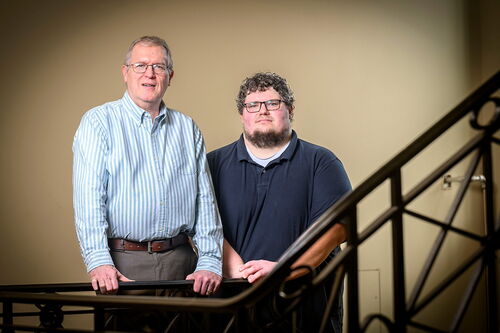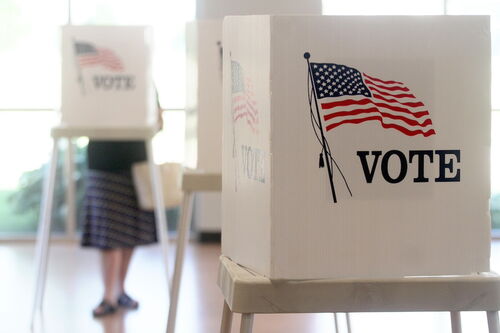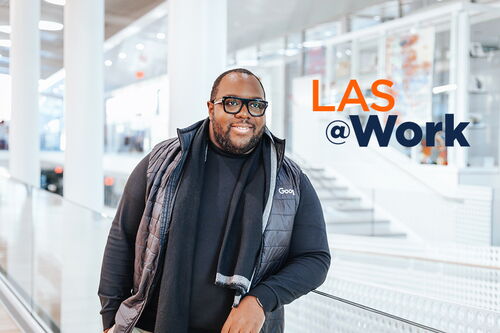Honoring a visionary
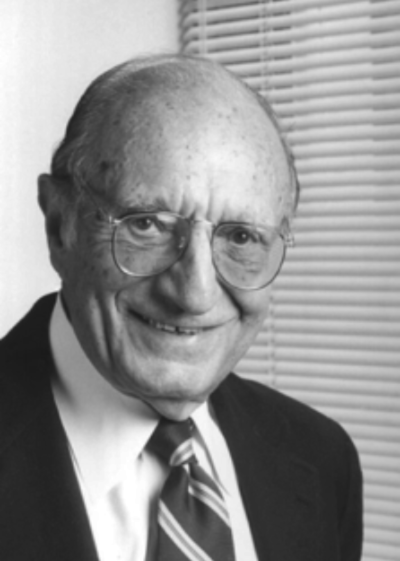
Public policy is endlessly complex. One of the most enduring ideas of the late David Linowes, professor of political economy, public policy, and business administration at Illinois who understood policy-making better than virtually anyone else, was this: If it’s going to work, good policy is formed by a vast array of viewpoints.
It was sage advice. In fact, the Cline Center for Democracy in the College of LAS began the Linowes Faculty Fellows program in 2012—which later grew to include the David F. Linowes Lecture on Public Policy and Management—to honor Linowes’ contributions to solving socio-political challenges.
Linowes, who worked with U.S. presidents and taught for more than two decades at Illinois, would have been 100 years old on March 16. He passed away in 2007 at age 90 at his home in Maryland.
“The Linowes Fellows program is a tangible expression of David Linowes' own vision for bringing cutting-edge, interdisciplinary scholarship to bear on pressing societal problems,” said Scott Althaus, Merriam Professor of Political Science, professor of communication, and director of the Cline Center.
A master of making policy
Aside from his career at Illinois, Linowes was well known for his work in the public and private sectors. He chaired three U.S. presidential commissions on privatization, coal, and energy resources, and he also chaired the federal Privacy Protection Study Commission of 1975-77, which was a product of post-Watergate reforms and became a landmark in privacy protection studies. It was used as a model for similar commissions in Europe, Canada, and elsewhere.
He continued his work on privacy issues while a member of the faculty at Illinois, once conducting a large-scale study of privacy issues at large corporations and calling for a federal law to protect employees.
“Today, employers are anxious to get as much information on employees as possible,” he told the Boston Globe in 2000. “Once it gets into a computer, once it gets a technical aspect, then anybody can get that information.”
Linowes received his bachelor’s degree in accountancy from Illinois in 1941 and later served in the Army Signal Corps during World War II. He became a certified public accountant, and from 1965 to 1975 he was a partner at Laventhol & Horwath in New York. Starting in the 1960s, he also served as a mergers and acquisitions specialist and headed United Nations trade missions to Europe and Asia.
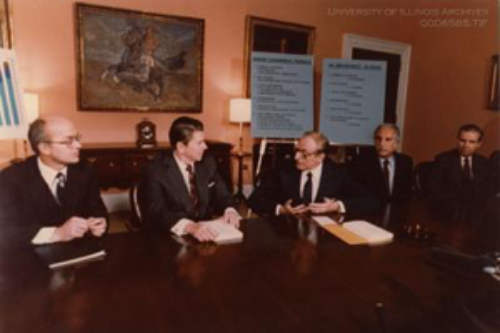
His books include “Managing Growth Through Acquisition” (1968), “Privacy in America” (1989), “Living Through 50 Years of Economic Progress with 10 Presidents” (2000), and “Creating Public Policy” (1998).
Honoring a lifelong commitment
The Cline Center began the Linowes Faculty Fellows program to honor Linowes’ commitment to interdisciplinary research that addresses socio-political issues. Combining engineering, data science, and statistical techniques with insights from political science, psychology, and law, the Fellows program is credited with fostering collaborative research with the potential to affect millions of people.
Each year, faculty members apply to be Linowes Fellows. They are asked to propose a research project, plan, and budget reflects the mission of the Cline Center. Fellows’ projects to date have focused on challenges to democratic governance, human rights, peace and conflict between ethnic and religious groups, and technologies that enable policymakers and others to use Big Data to understand complex societal issues.
Fellows also select a speaker for the annual David F. Linowes Lecture on Public Policy and Management. Now in its third year, the program brings renowned policy experts to campus to discuss how to address public policy challenges. For example, the first Linowes Lecture was conducted by Stanford University professor David Laitin, who spoke about two years of research on the struggle to integrate Muslim immigrants in France.
Althaus said the lecture series brings to campus some of the leading names in academic research. This year's lecture, scheduled for 3:30 p.m. on Wednesday, April 26, in 213 Gregory Hall, will feature Scott Page, professor of complex systems, political science, and economics at the University of Michigan. He will discuss novel ways to inform cost-benefit analysis using quantitative models and data.
“In a season when the practical relevance of social science research is increasingly questioned, the Linowes Lecture showcases for our faculty and graduate students some of the very best translational research in the social sciences,” Althaus said, “and (it) reminds us how much potential there is for academic research to advance our understanding of real-world problems.”
The contributions of Linowes Fellows are many. In 2015 and 2016, for example, Linowes Fellow Xinyuan Dai, a professor of political science, advanced our understanding of the interaction between meaningful elections, strong legal systems, and the country’s willingness to adopt and comply with international rules.
Linowes Fellows Cara Wong, professor of political science, LAS Global Studies, and Asian American studies (a Fellow from 2012-2015), Avital Livny, professor of political science (2016-present), and Dov Cohen, professor of psychology (2014-2016), have dramatically improved data analysis that can help us understand civil and ethnic conflict.
In 2015 and 2016, Cohen helped connect PETRARCH, a system developed using National Science Foundation funding to monitor conflict escalation and peace-making around the world, to the Cline Center’s Global News Archive and build a user interface to enable users to create new data without knowing how to write computer code.
“Through the Fellows program, distinguished members of the Illinois faculty are able to pursue innovative research projects aligned with the mission of the Cline Center,” Althaus said. “As a result, the Linowes Fellows program helps the university translate scholarly research into actionable knowledge with potential to advance societal welfare around the world.”






